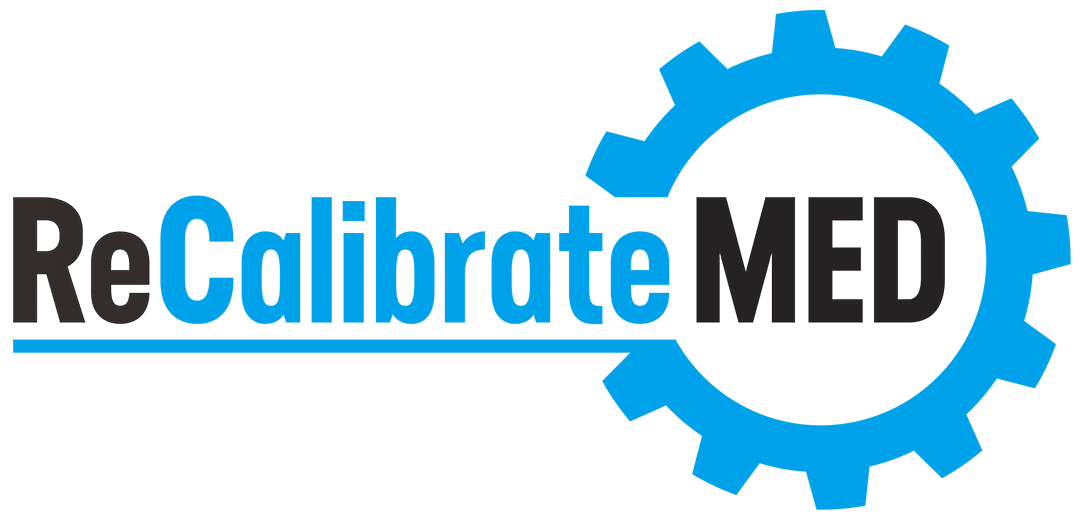One of the key factors that make medical weight loss programs effective is their individualized approach. These programs are tailored to each person’s unique needs and goals. A medical professional will conduct a thorough evaluation, including medical history, body composition analysis, and lab tests, to identify any underlying issues that may be contributing to weight gain.
Once the underlying causes are identified, a personalized treatment plan is created. This plan may include a combination of dietary changes, physical activity recommendations, behavioral counseling, and, if necessary, medication. The goal is not just to help you lose weight but also to improve your overall health and well-being.
Medical weight loss programs also focus on sustainable lifestyle changes rather than quick fixes. They provide education and support to help you develop healthy habits that you can maintain long-term. This holistic approach sets medical weight loss programs apart from other weight loss methods and increases their effectiveness.
In summary, medical weight loss programs are effective because they address the underlying causes of weight gain, provide personalized treatment plans, and focus on sustainable lifestyle changes. Now, let’s explore the pros and cons of these programs to help you make an informed decision.
Pros and cons of medical weight loss programs
Like any other weight loss method, medical weight loss programs have their pros and cons. Let’s start with the advantages.
One of the major advantages of medical weight loss programs is the professional supervision. These programs are overseen by medical professionals who have expertise in weight management. They can provide personalized guidance, monitor your progress, and make adjustments to your treatment plan as needed. This level of supervision can significantly increase your chances of success.
Another advantage is the comprehensive approach. Medical weight loss programs address not only the physical aspects of weight loss but also the psychological and behavioral factors. Behavioral counseling is often included in these programs to help you develop a healthy relationship with food, manage stress, and overcome emotional eating. This comprehensive approach increases the likelihood of long-term success.
Medical weight loss programs also offer accountability and support. Regular check-ins with medical professionals and support from a community of individuals going through similar journeys can help you stay motivated and on track. Having a support system can make a significant difference in your weight loss journey.
However, it’s important to consider the potential drawbacks of medical weight loss programs as well. One of the main concerns is the cost. These programs can be expensive, especially if they involve medication or specialized treatments. It’s important to weigh the potential benefits against the financial investment.
Another drawback is the time commitment. Medical weight loss programs require regular visits to the clinic or medical facility for check-ups and counseling sessions. This may not be feasible for everyone, especially those with busy schedules or limited access to medical facilities.
In summary, the pros of medical weight loss programs include professional supervision, comprehensive approach, and accountability/support. However, the potential drawbacks include the cost and time commitment. Now, let’s dive deeper into how medical weight loss programs work.
How medical weight loss programs work
Medical weight loss programs take a multifaceted approach to help you achieve your weight loss goals. Let’s explore the key components of these programs.
Diet and nutrition: A medical weight loss program will provide you with a personalized meal plan tailored to your specific needs and goals. This may involve calorie restriction, portion control, and specific macronutrient ratios. The goal is to create a balanced and sustainable eating plan that promotes weight loss while ensuring proper nutrition.
Exercise and physical activity: Physical activity is an essential component of any weight loss program. A medical weight loss program will provide recommendations for the type, duration, and frequency of exercise that suits your fitness level and preferences. Regular physical activity not only helps with weight loss but also improves cardiovascular health, increases muscle mass, and boosts overall well-being.
Behavioral counseling: Changing long-standing habits and behaviors is crucial for successful weight loss. Behavioral counseling is often included in medical weight loss programs to help you identify and address the psychological and emotional factors contributing to weight gain. This may involve techniques such as cognitive-behavioral therapy, stress management, and mindfulness training.
Medication, if necessary: In some cases, medication may be prescribed as part of a medical weight loss program. This is typically reserved for individuals with severe obesity or underlying medical conditions that require pharmacological intervention. Medications used in these programs are carefully selected and monitored by medical professionals.
The combination of these components creates a comprehensive and personalized treatment plan that addresses the underlying causes of weight gain and promotes sustainable weight loss. The medical professionals overseeing your progress will regularly evaluate and adjust your treatment plan to ensure optimal results.
Now that we understand how medical weight loss programs work, let’s discuss the factors you should consider before investing in one.
Factors to consider before investing in a medical weight loss program
Before you decide to invest in a medical weight loss program, it’s important to consider a few key factors:
Your overall health: Medical weight loss programs are designed to address obesity and related health conditions. If you have underlying medical conditions, it’s crucial to consult with your healthcare provider before starting a program. They can help determine if a medical weight loss program is appropriate for you and provide any necessary guidance or precautions.
Your commitment: Medical weight loss programs require dedication and commitment. They involve making lifestyle changes that may be challenging at times. Before investing in a program, assess your readiness to commit to the dietary, exercise, and behavioral changes required. It’s important to be honest with yourself and ensure you are prepared for the journey ahead.
Your budget: As mentioned earlier, medical weight loss programs can be costly. Consider your budget and determine if you are financially able to invest in a program. It may be helpful to research different programs and compare their costs to find one that aligns with your budget.
The program’s reputation and success rate: Do your research and look for reputable medical weight loss programs with a proven track record of success. Read reviews, seek testimonials from individuals who have tried the program, and consult with healthcare professionals for their recommendations. Choosing a program with a high success rate can significantly increase your chances of achieving your weight loss goals.
By considering these factors, you can make an informed decision about whether a medical weight loss program is the right choice for you. To help you gain further insights, let’s explore some success stories and testimonials from individuals who have tried medical weight loss programs.
Comparing medical weight loss programs to other weight loss methods
There are various weight loss methods available, ranging from fad diets to over-the-counter supplements. Let’s compare medical weight loss programs to some commonly used methods:
Fad diets: Fad diets often promise quick weight loss but are not sustainable in the long run. They may lead to temporary weight loss but can be difficult to maintain and may lack proper nutrition. Medical weight loss programs, on the other hand, focus on sustainable lifestyle changes and provide personalized meal plans that ensure proper nutrition.
Over-the-counter supplements: Over-the-counter weight loss supplements are widely available but may not have sufficient scientific evidence to support their effectiveness. Medical weight loss programs, on the other hand, are backed by scientific research and supervised by medical professionals. They take a comprehensive approach that addresses the underlying causes of weight gain.
Surgical interventions: Surgical interventions, such as gastric bypass or gastric sleeve surgery, are options for individuals with severe obesity. While these procedures can lead to significant weight loss, they come with potential risks and complications. Medical weight loss programs offer a non-surgical alternative that can be effective for individuals who do not require surgical intervention.
In summary, medical weight loss programs offer a comprehensive and evidence-based approach to weight loss, setting them apart from fad diets, over-the-counter supplements, and surgical interventions. Now, let’s discuss the cost analysis and potential savings with medical weight loss programs.
Cost analysis and potential savings with medical weight loss programs
As mentioned earlier, the cost of medical weight loss programs can be a concern for many individuals. However, it’s important to consider the potential savings in the long run. Let’s break down the cost analysis:
Initial evaluation and testing: Medical weight loss programs often involve an initial evaluation, including medical history, body composition analysis, and lab tests. While this may incur upfront costs, it provides valuable insights into your health and helps create a personalized treatment plan.
Treatment plan and follow-up visits: The cost of the treatment plan and follow-up visits will vary depending on the program and the duration of your participation. It’s important to inquire about the fees and understand what is included in the program.
Potential savings: By investing in a medical weight loss program, you are not only investing in weight loss but also in your long-term health. Addressing underlying health conditions and adopting a healthier lifestyle can potentially save you money on future healthcare costs related to obesity-related conditions.
It’s important to weigh the potential benefits and savings against the cost of the program. Keep in mind that the investment in your health and well-being is priceless. Now, let’s discuss how to find the right medical weight loss program for you.
Finding the right medical weight loss program for you
Finding the right medical weight loss program is crucial for your success. Here are a few steps to help you find the program that aligns with your needs and goals:
Research: Start by researching different medical weight loss programs in your area. Look for reputable programs that have positive reviews and a proven track record of success. Consider factors such as the qualifications and expertise of the medical professionals involved, the program’s approach, and the support offered.
Consultation: Once you have identified a few programs of interest, schedule consultations with the medical professionals. This will allow you to ask questions, discuss your goals, and understand the program in more detail. Take this opportunity to assess their expertise, communication style, and the level of personal attention they provide.
Consider your compatibility: It’s important to find a program that you feel comfortable with and confident in. Consider factors such as the location, schedule flexibility, and the overall atmosphere of the clinic or medical facility. Feeling comfortable and supported in your environment can greatly contribute to your success.
Cost analysis: Finally, consider the cost of the program and compare it to your budget. Remember to weigh the potential benefits and long-term savings against the financial investment.
By following these steps and taking the time to find the right program for you, you can increase your chances of achieving your weight loss goals. Now, let’s conclude our discussion and summarize the key points.
Conclusion: Making an informed decision about medical weight loss programs
Medical weight loss programs offer a comprehensive and personalized approach to weight management. Backed by scientific research and supervised by medical professionals, these programs address the underlying causes of weight gain and provide sustainable long-term results. They combine dietary changes, exercise recommendations, behavioral counseling, and, if necessary, medication to create a holistic treatment plan.
While medical weight loss programs have their pros and cons, they offer professional supervision, a comprehensive approach, and accountability/support. However, they can be costly and require a time commitment. It’s crucial to consider factors such as your overall health, commitment, budget, and the program’s reputation before investing.
The cost of medical weight loss programs can be a concern, but it’s important to consider the potential savings in the long run. By investing in your health and well-being, you may avoid future healthcare costs related to obesity-related conditions.
Finding the right medical weight loss program for you involves research, consultations, considering compatibility, and analyzing the cost. By taking these steps and making an informed decision, you can embark on a weight loss journey that is tailored to your needs and goals.
It’s time to take control of your weight and overall health. Consider a medical weight loss program and invest in a healthier and happier future. Call us today at (910) 420-0443.





